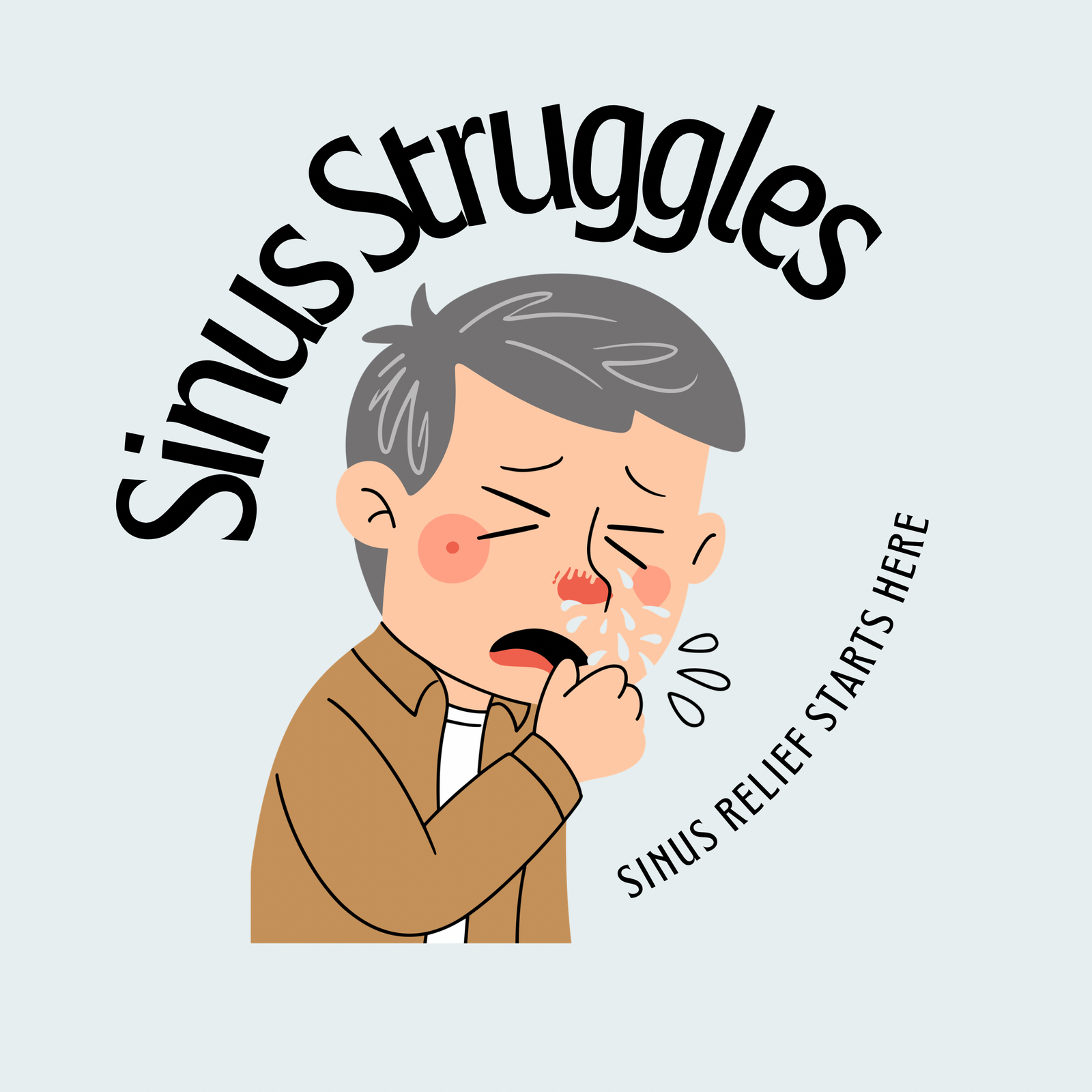Whether you’re prepping for septum surgery, dealing with chronic sinus issues, or just trying to figure out why your head feels like it’s full of bricks — you’re not alone. Here are answers to some of the most common questions we get here at SinusStruggles.com.

How long is recovery after deviated septum surgery?
Everyone’s different, but for many people, recovery takes 7 to 14 days. That said, it’s not always a smooth ride. You can read my personal day-by-day experience here:
👉 After Deviated Septum Surgery
Is septum surgery really that bad?
In my experience — yes. It was one of the most painful and draining surgeries I’ve been through, and I’ve had my fair share. The pain, swelling, breathing issues, and emotional toll are no joke. That’s why I started this site: to tell the truth nobody else is really talking about.
Why do my ears feel full after sinus surgery?
It’s actually pretty common. Swelling in your sinuses can affect the Eustachian tubes, which connect your ears to your throat. When they’re blocked or inflamed, it can cause pressure, popping, and that annoying “underwater” feeling. This can last days to weeks depending on the person.
Can sinus problems cause tooth or jaw pain?
Yep — the sinus cavities sit right above your upper teeth, and inflammation or pressure in the maxillary sinuses can make it feel like your teeth or jaw are throbbing. If your upper teeth hurt and there’s no dental issue, your sinuses might be to blame.
Are sinus infections and allergies connected?
Definitely. Allergies can lead to inflammation and mucus buildup, which creates the perfect breeding ground for a sinus infection. If you’re constantly stuffed up from allergies, it’s easier for things to get infected.
How often should I do sinus rinses?
During recovery or when you’re sick, your doctor may recommend rinsing up to 6 times a day. Normally, once or twice daily is enough to keep things clear. But listen to your body — and be gentle. You can read more about my experience with painful rinses and clogged stents in my recovery article.
Do you give medical advice?
Nope — just honest, personal experience. Nothing on this site should be considered medical advice. For more info, please read our Terms and Conditions and Affiliate Disclaimer.
What if I have a question or want to share my story?
We’d love to hear from you. You can reach out through our Contact page. Whether you’re going through a rough recovery, have a question, or want to contribute your own sinus story, we’re here for it.
Can I blow my nose after sinus surgery?
Nope — don’t do it. Blowing your nose too soon can mess with the healing process, cause bleeding, or even shift the stents or stitches. Most doctors recommend waiting at least a week or two or until you’re cleared.
Why is my nose still bleeding days after surgery?
Light bleeding or pink drainage is normal for several days. If you’re seeing bright red blood, clots, or nonstop bleeding, contact your doctor. Swelling, scabbing, and dryness can all contribute to minor bleeding — especially after saline rinses.
Can sinus problems cause fatigue?
Absolutely. Sinus pressure, poor sleep, inflammation, and mouth breathing can all wear you down physically and mentally. It’s one of the most overlooked side effects of chronic sinus issues.
How long does the swelling last after deviated septum surgery?
Swelling usually peaks around days 2–4 and then slowly starts to ease. Some mild swelling can stick around for 2–4 weeks, especially around the nose and under your eyes. Ice packs and a humidifier help a lot.
Should I use a humidifier after sinus surgery?
Yes — and it can be a lifesaver. A good warm or cool mist humidifier can help keep your nasal passages from turning into a brick wall. I literally sat with my face over one just to survive the dryness. You’ll find out more about that in my recovery story here.
Why do I feel worse at night?
Lying down can increase pressure, swelling, and drainage buildup. A wedge pillow or sleeping upright in a recliner can make a huge difference. Nights were some of the worst times during my recovery.
Are ear infections related to sinus problems?
Yes — your sinuses and ears are connected through the Eustachian tubes. When your sinuses are blocked or inflamed, it can cause pressure buildup or even lead to ear infections or hearing changes.
Will I be able to breathe better after all this?
Eventually — yes. The goal of septum surgery or sinus treatment is to improve airflow long-term. But during the first week or two, expect things to feel worse before they get better. I’ll keep updating this site as my own recovery progresses.
How long should I take off work?
Most people need at least 7–14 days off, depending on how physical their job is. I’ve talked to multiple people who said two full weeks was the minimum for real recovery time — and I completely agree.
What products helped you the most?
I’ll be creating a full list soon, but off the top:
- Humidifier
- Ice packs
- Saline nasal spray
- Wedge pillow
- Soft tissues
- Pain relief rotation
- Distractions (TV, podcasts — seriously, you need them)
Where can I follow you for updates?
We’re keeping things honest and real over on Facebook. If you want to follow along, comment, or share your own story — join us here:
👉 Follow Sinus Struggles on Facebook 👈
We post article updates, tips, and real recovery talk with zero fluff.
If you didn’t see your question here — let us know and we might add it to the list. Thanks for visiting SinusStruggles.com. You’re not alone in this fight.